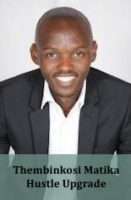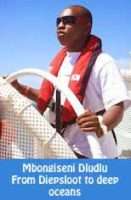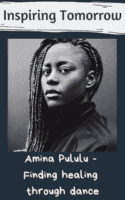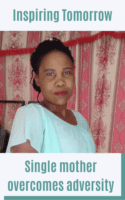Ask your parents which career they dreamed of following when they were children, and they are most likely to reply: “I wanted to be either a teacher, doctor or a police officer.” That is a common answer from their generation. There were not too many careers to choose from in those days, but this is no longer the case.
Having all these choices is something that can be both a blessing and a curse. Some people choose to study a particular career only to learn that it is not really their calling, and they drop out. It can be problematic finding what you love to do.
Thembinkosi Matika, who is twenty-seven and from Khayelitsha in Cape Town, is one such person who has had several false-career starts.
He first enrolled at the University of the Western Cape (UWC) in 2007 to study Medical Bioscience. “In 2008 I dropped out because I found out that Medical Bioscience was not my calling,” he says.
This was the start of a nightmare and soon circumstances forced him to resort to illegal dealings – just to keep body and the soul together.
“After dropping out I got a job as a barman and I got paid peanuts, so I decided to sell drugs. I started with dagga and I moved to mandrax and tik. I worked as a barman and sold drugs for two years, 2009–2011,” he explains.
The bar he worked in may have paid him ‘peanuts’, but he soon learned that crime does not pay a thing. “In 2011 I got arrested for selling drugs and I spent three days in jail,” says Thembinkosi. He was acquitted as he was a first time offender.
A child does not know how a hotplate burns until they touch it, and sometimes in life people go through harsh experiences so they do not make the same mistakes in future. “That event gave me a wake-up call. When I got out of jail I turned my life around. I applied for a child and youth care internship job at Afrika Tikkun and got it. In 2012, Afrika Tikkun sent me to Educo Africa’s personal development camp to build our capacity to work with children and youth.”
Afrika Tikkun is a Non-Governmental Organisation (NGO) that aims to develop children into tomorrow’s productive citizens, and contributing members of the community.
Educo Africa believes in helping to create active youth via experiential learning. They work with disadvantaged communities and assist in developing self-esteem and personal development. “I was given an opportunity by Educo Africa to manage their Social Enterprise Programme,” says Thembinkosi.
Thembinkosi then co-founded the popular hip hop show in 2009, Royal Open Mic Sessions (ROMS) street talk in an attempt to help keep Cape Town youth busy and off the streets.
“ROMS street talk is a series of hip hop documentaries that aims at promoting street hustles within the hip hop community.” Thembinkosi explains passionately. The film features recording sessions, performances, rehearsals, street fashion, battles, artist profiles, poets, record label profiling, music business, radio interviews, hip hop supporters and producers. (To view more street talk clips search for Terror DaPromoter on YouTube).
He is also now the Managing Director (MD) at Amanhlane Farmers and Multipurpose Cooperative, co-founder of Terror DaPromoter Production and Management.
He says these career events have shaped and made him who he is today. He feels he was a rough diamond who has been through a ‘polishing’ process.
He also credits religion for his turnaround. “I found God. I’m now a member of Good News Community Church and when I look back I realise that He has been working miracles in my life,” says the young man.
Thembinkosi concludes by quoting one of his role models, the famous entrepreneur and television presenter DJ Sbu: “When others see a glass half empty, hustlers like me, see it half full.”
***
Tell us what you think: Does one have the power to change their past? What choices or circumstances can trap you and keep you in one place?







